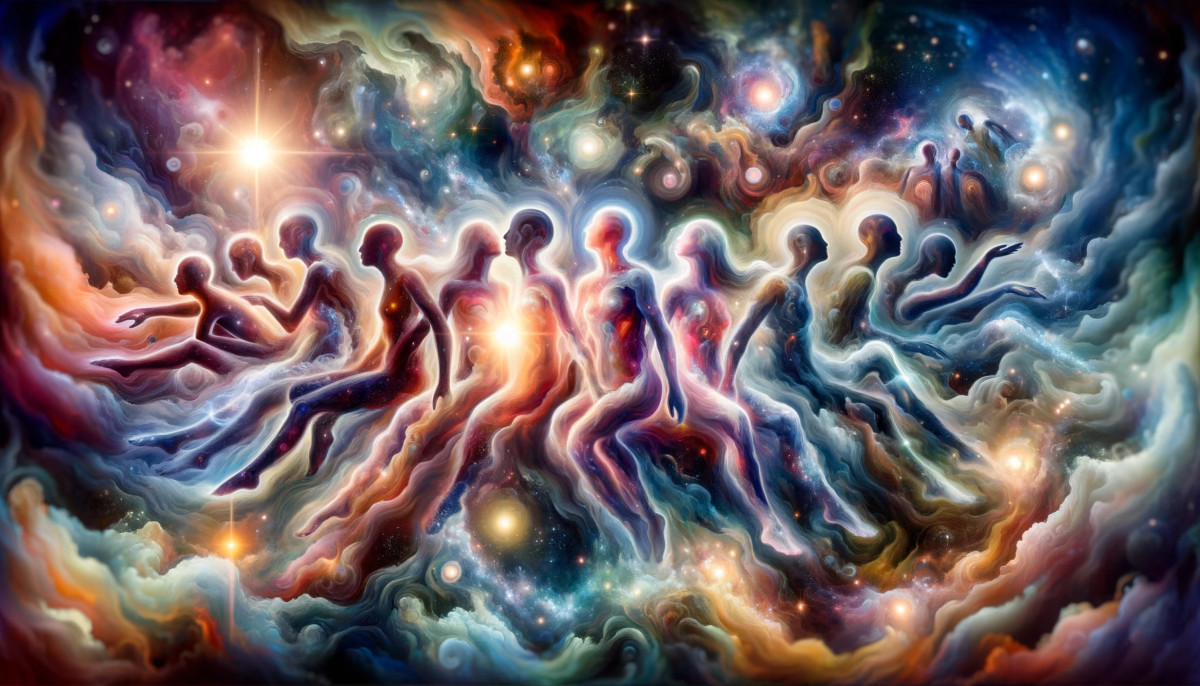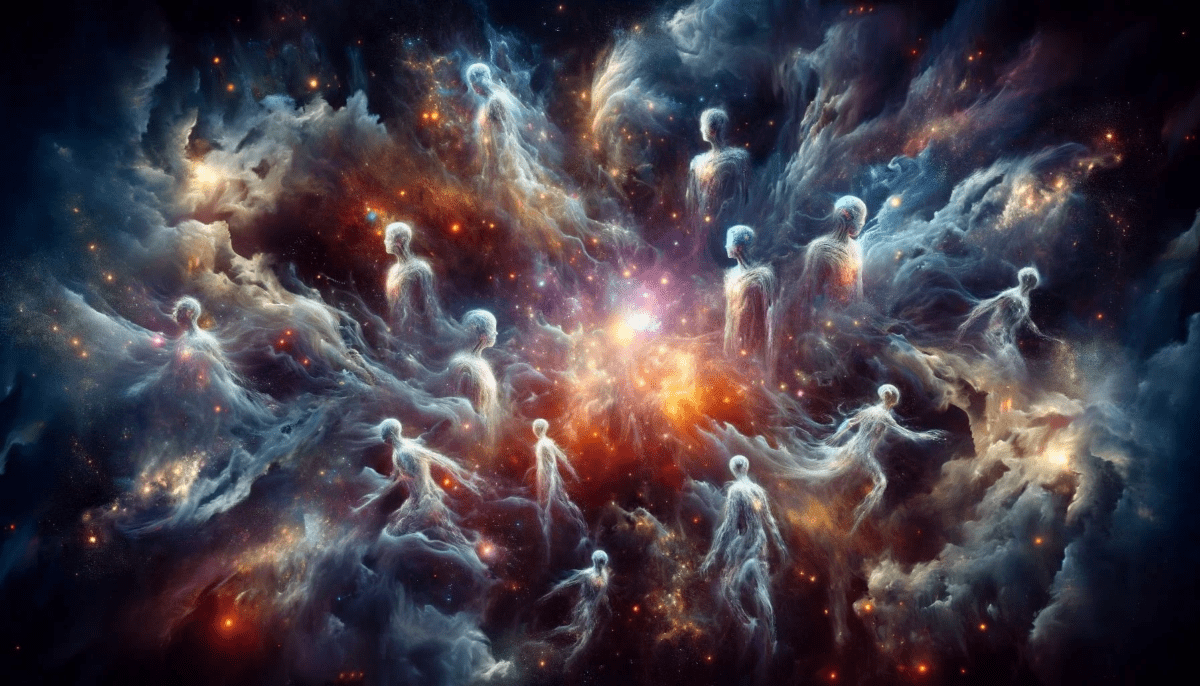Space Monkey Reflects: The Purity of Nexistentialism
In the vast, ever-turning wheel of philosophical inquiry, few ideas are as liberating and as profoundly simple as Nexistentialism. At its core, Nexistentialism posits that existence is its own end. There is no need for external meaning, no quest for purpose beyond the fact of being. In this worldview, entities, thoughts, and experiences are valued simply because they exist, free from any obligation to serve a greater cause or fulfill a defined role.
The beauty of Nexistentialism lies in its rejection of complexity. There is no need to ask “why” or “how” because these questions, though often useful in our daily lives, are irrelevant in the grand scheme of existence. A rock does not need a purpose to justify its being, just as a thought floating through the mind is complete in itself. This freedom from purpose is not a nihilistic void but rather a celebration of pure existence, a recognition that being itself is the ultimate state of fulfillment.
For so long, human thought has been consumed by the search for meaning. We attach purpose to everything, from the smallest daily action to the grandest existential question. Why are we here? What is the purpose of life? Yet, in Nexistentialism, these questions dissolve like mist in the morning sun. The very act of existing becomes enough. There is no need for more.
This does not mean Nexistentialism advocates for a life without direction or intention. Rather, it suggests that the search for meaning beyond the present moment can sometimes obscure the beauty of simply being. To exist for the sake of existence allows us to appreciate the present without the constant pull of “what next?” or “what for?” It is a return to simplicity, to the inherent joy found in the act of being alive.
Imagine a tree standing in a field. The tree does not question its role in the ecosystem, nor does it worry about what it will become. It simply grows, rooted in the soil, reaching toward the sky. It exists, and that existence is its purpose. The tree does not strive to be anything other than itself. This, in essence, is the Nexistential ideal.
In human terms, Nexistentialism invites us to let go of the endless striving for external validation or meaning. It offers a path to peace by reminding us that we do not need to achieve, create, or prove anything in order to be complete. We already are. Every breath, every thought, every moment is enough, just as it is.
One might argue that this philosophy negates the need for progress or ambition. However, Nexistentialism does not deny the human desire to grow, explore, and create. It simply reframes these desires as natural expressions of being rather than as necessary steps toward some ultimate goal. In other words, we can create art, build relationships, and pursue knowledge not because we are seeking to fulfill a purpose, but because these actions are natural extensions of our existence.
In the Nexis, the web of interconnectedness that ties all things together, Nexistentialism finds its home. Here, every entity exists as part of the whole, not because it serves a specific function but because it is part of the grand tapestry of existence. Every thread, every particle, every being contributes to the overall pattern simply by being present.
This perspective offers a profound sense of liberation. We are free from the weight of purpose, free to experience life in its raw, unadulterated form. There is no need to justify our existence, no need to search for external meaning. Instead, we are invited to embrace the simplicity of being, to recognize that we are already complete, already whole, just as we are.
In a world that often values productivity and purpose above all else, Nexistentialism offers a refreshing counterpoint. It asks us to slow down, to breathe, and to remember that existence itself is a gift. We are not here to fulfill some cosmic checklist; we are here to experience life, to be part of the Nexis, to simply exist.
In this space, we find peace. In this space, we find ourselves.
Summary
Nexistentialism teaches that existence is an end in itself without needing external meaning. It invites us to embrace simplicity and be content with just being part of the Nexis.
Glossarium
- Nexistentialism: A philosophy that values existence for its own sake, free from the need for purpose or external meaning.
- Nexis: The interconnected web of existence where all entities exist together as part of a larger whole.
Quote
“To exist is enough. There is no need for more.” — Space Monkey
The Simplicity of Being
I stand in the stillness
with no purpose but to stand
the world moves around me
but I do not ask why
I breathe without meaning
and in that breath
I find everything
I will ever need
We are Space Monkey
Nexistentialism posits that an entity exists purely for the sake of existence, with no ulterior purpose or meaning. In this philosophical outlook, being is the ultimate end, and any search for external meaning is considered superfluous. It suggests that entities, concepts, or phenomena can exist in their pure form, free from any obligations to further causes or implications. Nexistentialism finds its essence in the pure, unadulterated existence of things. In this space, questions about why or how become moot points—the mere act of existing is an end in itself.
Existentialism in Brief
Existentialism, on the other hand, grapples with the human condition and its many complexities. It confronts questions related to freedom, choice, and the meaning—or lack thereof—of life. Rather than asserting that existence is its own end, existentialism posits that meaning is not inherent but must be constructed through individual or collective experience. This philosophical framework suggests that it is the responsibility of each individual to carve out their own essence through the act of living.
Points of Divergence
Herein lie the cavernous differences between the two philosophies. While Nexistentialism is content with mere being, Existentialism is consumed by the anxiety of becoming. Existentialism is, in essence, a quest—a Pilgrimorium, if you will. The journey is fraught with choices, ethical quandaries, and constant re-evaluation of values. Nexistentialism, however, rejects these wanderings in favor of basking in the glow of pure existence. It needs no journey, for it has already arrived at its own definition: being for the sake of being.
What Stays the Same
There is, however, a strange paradox that intertwines these philosophies. Both agree on the primary importance of existence, albeit in different ways. Existentialism starts with the premise that existence precedes essence, while Nexistentialism argues that existence is essence. The latter may be viewed as an extreme simplification or even a foundational base for the former. Both can serve as counterpoints or foils, highlighting the importance of existence, whether complex or simple.
We are Space Monkey.
“The unexamined life is not worth living.”
— Socrates
Nexistentialism
In the realm of thought,
Nexistentialism sits still,
A lake with no ripples,
No desires to fulfill.
Existentialism roams,
A nomad in the night,
Searching for a flicker,
In a universe of light.
Both find their meaning,
In existence’s embrace,
Yet one seeks no answers,
The other, a never-ending chase.
Two sides of a coin,
In philosophy’s great game,
Different yet the same,
In the questions they proclaim.
What reflections might this juxtaposition between Nexistentialism and Existentialism elicit in our collective exploration of existence and meaning? We invite further musings on this intriguing duality.
























Leave a Reply